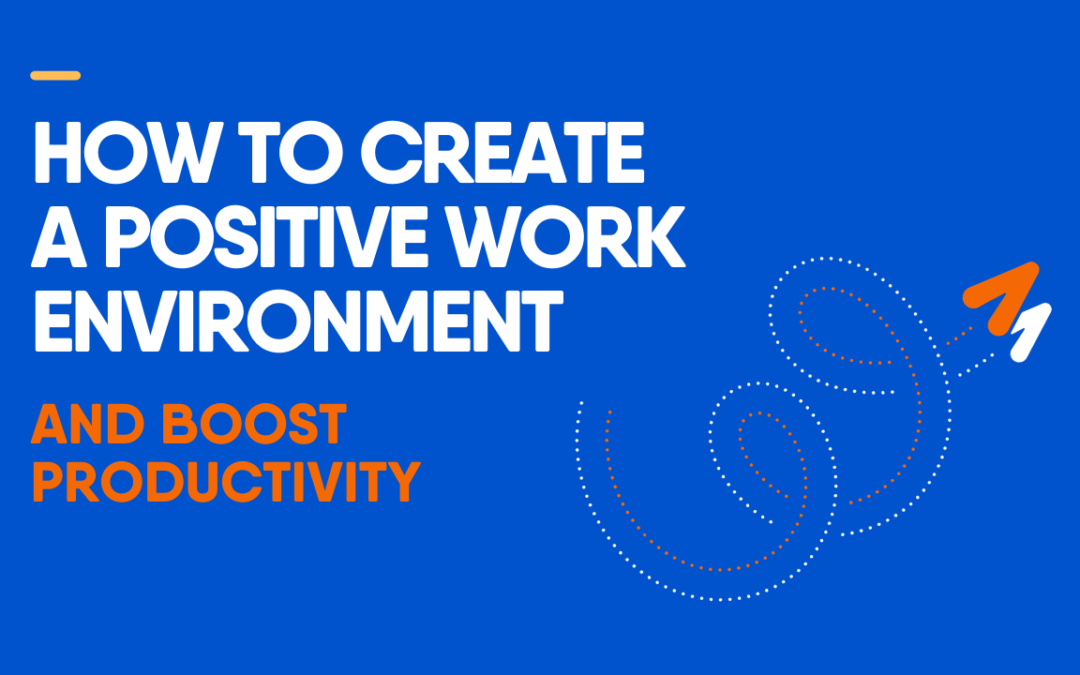If you work in an office environment, chances are your colleagues probably don’t get along. Maybe they spend most of their time gossiping and not working. Or maybe they just don’t like each other. The point is that your office environment might be negatively affecting productivity as a whole.
If you want to create the best work environment for productivity and boost employee engagement, here are some things you can start doing right now:
Instead of complaining about your colleagues or their behavior, find ways to make them like working with you instead. And no, that does not mean socializing with them more often or making small talk with them whenever possible.
You see, office friendships are different from real-life friendships. They tend to be superficial and fake, so the only way to make a positive impact on your coworkers is to change how you act around them from the inside out first instead.
Show your team you’re engaged
If you’re constantly checking your email, for example, your coworkers will probably start to feel like you’re not interested in them or their work. Try to keep tabs on your emails less often so that you seem more interested in the people around you than just the task at hand.
While everyone needs to manage their own time, you’ll also have a better work-life balance if you do the majority of your work online (e.g. at home or on your laptop while sitting in your bed).
If you need to talk to certain people outside of work, try to do so as much as possible via phone/Skype/Google Hangouts/etc. Calling people instead of sending emails is not only more personal, but it can also be more productive.
You’ll probably also have a better conversation if you manage to keep your voice lower (you don’t have to shout) and your tone warmer since you’re not rushing to get the words down on paper.
And when you do need to send an email, keep it as brief and simple as possible.
Let your team see you understand
A lot of people in positions of power assume that if they can just explain things to their teams/employees in a way that makes them feel dumb, they’ll magically start to like and trust them more. That might be the case with your boss or a few of your team members, but it’s unlikely to be true for everyone. If your boss is constantly explaining things to your team members in a way that makes them feel stupid, they’ll most likely stop trusting and appreciating them.
The best way to let your team members know that you understand them and respect them is to actually ask them how they feel and what they want. This might come off as too “touchy-feely” to a lot of people, but if you actually try to communicate with your team members, they’ll probably feel better.
If a colleague asks you how they should deal with a conflict, don’t just tell them what you do in such situations at work. Ask them how they want to be treated and what they expect from their coworkers!
Avoid blaming to build trust
If you keep blaming your employees for mistakes, they’ll most likely start to resent working with you. Mistakes happen, but blaming your team members for them is a massive sign of weakness, so it’s important to have a thick skin and own your mistakes instead. You might have to apologize or make compensations here and there, but don’t blame your team members for them.
Even if your team members make a mistake on their own, blaming them for it will make them feel dumb and incompetent—two things that you don’t want them to feel.
Be self-aware—and demand the same from your team.
A self-aware team will be more likely to recognize their own insecurities and try to compensate for them. The best way to make sure your team members are self-aware is to be self-aware yourself.
If a colleague is constantly complaining about a task or a project, ask them to give you more information or help you do it yourself.
All too often, people complain because they also have a role in a project, task, or situation—they just might not realize it yet.
Nip negativity in the bud
If your team members are too keen on nipping negativity in the bud, they might start to resent or even hate one another. Work together with your team members to keep nipping negativity in the bud so that they don’t get out of hand.
If you see someone constantly criticizing others or pointing out the flaws in their work, have a talk with them. Try to understand why they might be doing that and what it might mean.
Include your team in decision-making.
If you’re the only person making all the decisions in your company, your employees might resent you for it. Make sure to include your team members in decision-making processes so that they feel like they’re part of the process.
Keep discussions and meetings open and transparent, and make sure your team members feel like they’ve been heard.
If you’re the only one making decisions in your company, you might want to consider forming a strategy team or taking a more consultative leadership style where you’re the leader, but your team is generally in charge.
Be open to feedback.
If you’re too closed-off and don’t welcome feedback, your team members might resent you.
Keep in mind that no matter what level you work at, there are going to be people who don’t like you or your work.
If someone gives you feedback, don’t just keep it to yourself—feed it back to your team.
If you’re the only person who’s getting feedback, everyone will feel like they’ve been left out of the decision-making loop.
Champion your team.
If you’re constantly praising your team members, you’ll be putting pressure on them to be the best at what they do and to make all the sacrifices necessary for their job.
On the other hand, if you constantly throw shade at your team members, you might start to resent and bully them.
If you’re the only person who’s a positive reinforcement and encouraging them, you might end up annoying them. Keep your praise positive, and don’t praise your team members just for the sake of it. If someone deserves a pat on the back, give it to them.
Championing your team means showing them that you appreciate them and what they do. This means being open to thank your team members for their work and being genuinely grateful for the sacrifices they make on your behalf.
Conclusion
If your work environment is negatively affecting your productivity and morale as a whole, then that’s something that you should address.
But, even if you don’t feel ready to do so, you can still change how you act around your colleagues. By following these tips, you can help create a more positive work environment for everyone involved.
And even if your office dynamics aren’t perfect, you can still reap the benefits of being happy and productive at work.
Company culture & psychological safety resources:
- Daniel Coyle, The Culture Code: The Secret of Highly Successful Group
- Daniel Coyle, The Culture Playbook
- Amy C. Edmondson, Fearless Organization
- Timothy R. Clark, The Four Stages of Psychological Safety
- L. David Marquet, Turn The Ship Around
Ready to learn more about working with us and unleashing your leadership potential?
Want to think about it some more?
Let's connect
Our social media is where we regularly share tips and content for balancing life and business and enjoying both.

